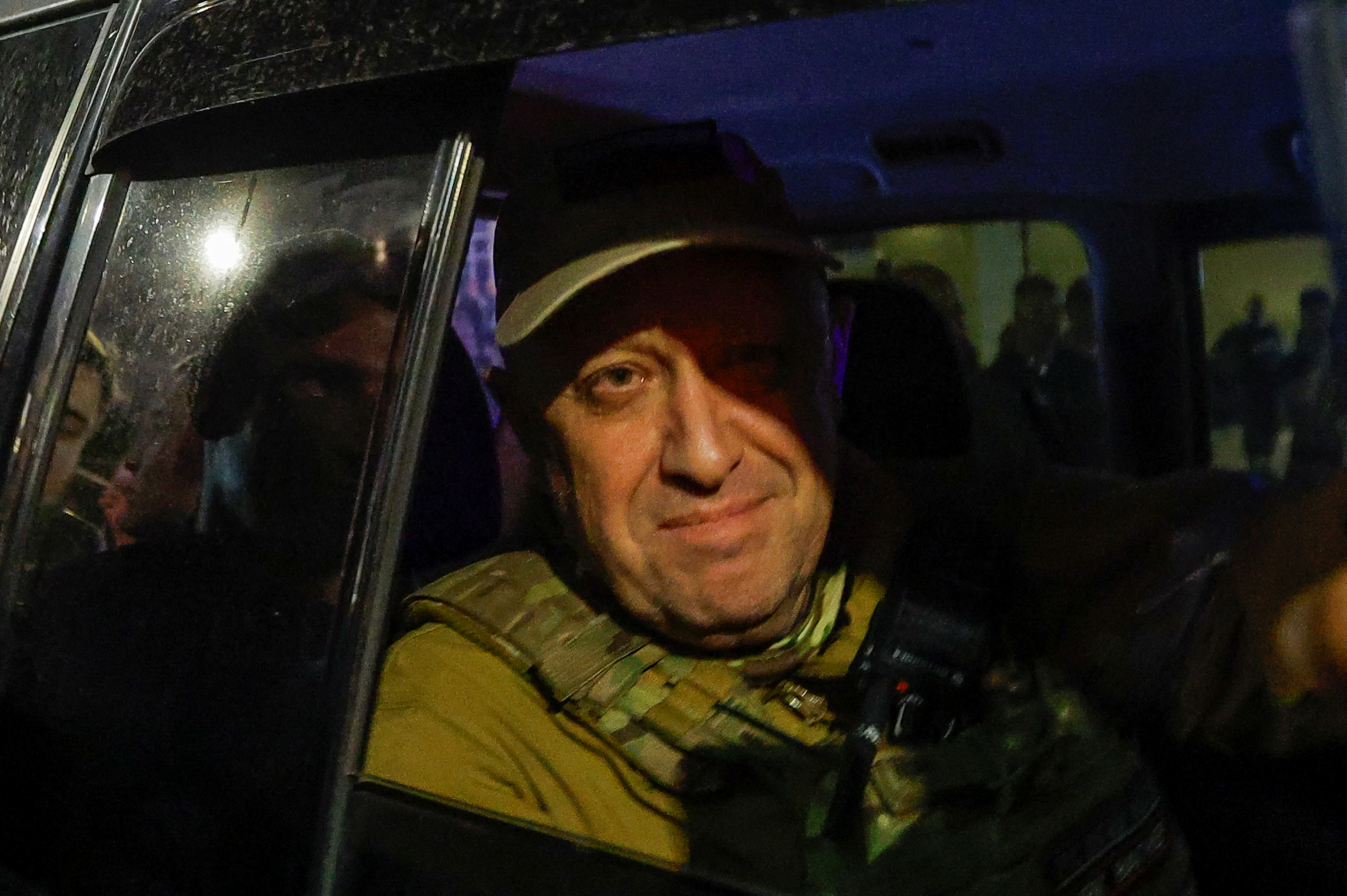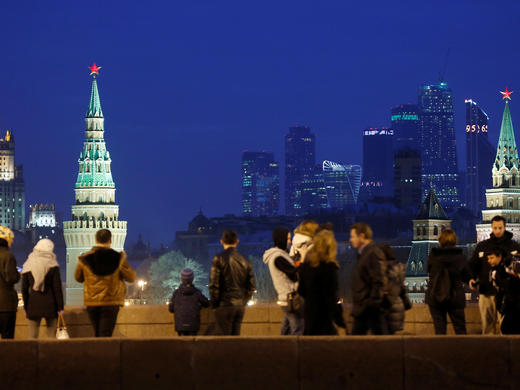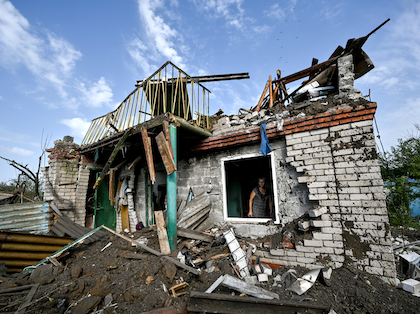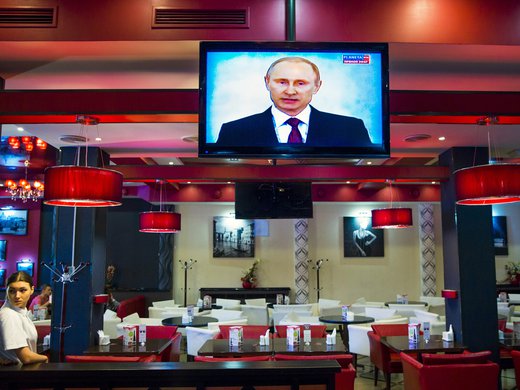Russian and, potentially, global politics took a dramatic turn on the weekend of June 24. Far from the front lines in Ukraine, Russian mercenary boss Yevgeny Prigozhin launched an armed uprising against the Kremlin but aborted the mission before his troops reached Moscow. This unfolded after months of incendiary Telegram posts by the Wagner Group leader, accusing Russia’s top military brass of corruption and incompetence over its failures in Ukraine.
Late on Friday, June 23, Prigozhin claimed without evidence that scores of his soldiers had been killed by a Russian air strike. Russia’s defence ministry denied this, calling it “an informational provocation,” and charged the paramilitary leader with treason. Within hours, Wagner mercenaries had crossed into Russia from Ukraine, capturing military sites in the southern city of Rostov-on-Don. Soon after, they advanced into the Lipetsk region, vowing to storm Moscow, roughly 400 kilometres away. This triggered a full security lockdown in the capital on Saturday afternoon, amid rumours that Vladimir Putin had fled on his presidential plane. Earlier that day, in a national television address, Putin called Prigozhin’s actions “a stab in the back.” By Sunday, it was announced that Prigozhin would accept exile in Belarus, in a deal brokered by Belarusian President Alexander Lukashenko, in exchange for amnesty for himself and all Wagner fighters involved.
The story continues to evolve. On Monday, the Wagner Group leader, suspected of having left for Belarus, defended his botched gambit in an 11-minute audio clip, saying “society demanded it.” Putin appeared hours later in a pre-recorded video address, thanking the Russian people for supposedly helping to avert civil war, before downplaying everything by claiming “the mutiny would have been suppressed anyway.” On Tuesday, Russia’s Federal Security Bureau announced it was closing its criminal investigation into the whole affair.
Who Is Yevgeny Prigozhin?
The Wagner Group first appeared in support of Russia’s 2014 annexation of Crimea, where they helped seize Ukrainian military facilities before fighting alongside Russian soldiers in the Donbas region. Yet for years the Kremlin denied the private military company even existed. Prigozhin himself only finally admitted last September to being the group’s leader after he was filmed recruiting from Russian prisons.
Instead, the private mercenaries operated as a shadowy, decentralized proxy force comprised of former Russian military and intelligence personnel, acting in line with Russian state interests. The military contractors’ greatest value for Putin appeared to be their deniability. Through selling their services to embattled authoritarian regimes and rogue military leaders in places such as Libya, Mali, Sudan, Syria and Venezuela, the Wagner Group has been a key part of Russia’s global power projection over much of the past decade. By backing anti-democratic leaders in various unstable, resource-rich nations around the world, the Wagner Group has worked to erode Western influence. It has guarded infrastructure and natural resource sites, trained domestic security forces, protected elites, engaged in brutal counter-insurgency operations and orchestrated digital propaganda campaigns.
Even if Putin were to be removed from power, it almost certainly wouldn’t move Russia closer to responsible leadership. Indeed, the opposite might occur.
However, Wagner’s approach changed with Russia’s full invasion of Ukraine in February 2022. As Russia’s regular military suffered immediate and serious setbacks against a determined Ukrainian defence, Prigozhin’s private army took on greater prominence and visibility. Images on social media showed Wagner soldiers in front-line battles in Ukraine while a public relations barrage, complete with recruitment billboards saying “the ‘W’ orchestra awaits you,” targeted cities across Russia. By September 2022, Prigozhin was touring Russia’s penitentiaries with Putin’s blessing, offering commuted sentences in exchange for six months’ service; deserters would be executed. Some 50,000 convicts enlisted.
Prigozhin then opened a shiny new building complex in St. Petersburg last November — a hybrid headquarters, think tank and defence tech centre meant to house developers, information technology specialists, and start-ups. By January this year, a youth wing had been formed to host ideologically driven events in schools. That same month, the US government formally sanctioned the mercenary outfit as a transnational criminal organization.
Meanwhile, Wagner recruitment efforts have exploded online this past year. Postings in several languages on social media promote openings for fighters, medics, tech specialists and drivers. The company advertises monthly salaries of 240,000 rubles (about US$2,800), plus benefits including health care — more than twice the average Russian income.
But it was during the recent months-long battle for Bakhmut that the Wagner Group seemingly morphed into a vehicle for Prigozhin’s personal ambitions. Ukrainian soldiers recounted cynical human wave attacks used by Wagner during that time to overwhelm their positions, the city eventually falling in late May 2023 at the cost of thousands of Wagner soldiers’ lives. This period was marked by a sharp uptick in Prigozhin’s obscene tirades against Russia’s military leadership over what he alleged was a refusal to supply his men with ammunition. While careful to never mention Putin by name, during one video — while walking between rows of slain soldiers — he warned that Russia’s military leaders risked a domestic revolution over their willingness to use Russian men as cannon fodder in their attempts to capture Ukrainian territory.
What’s been most remarkable about Prigozhin throughout the conflict has been his willingness to debunk state propaganda and channel populist fury toward Russia’s military leadership on a near daily basis. In particular, he has repeatedly excoriated Defence Minister Sergei Shoigu and military Chief of Staff Valery Gerasimov as out-of-touch elites disconnected from battlefield realities. This comes at a time when the Kremlin has severely repressed even moderate dissent. Before the mutiny, part of that tolerance stemmed from Prigozhin’s long history as one of Putin’s inner circle.
The two men’s ties date to the St. Petersburg underworld of the 1990s, where they were members of a generation of Russian ultranationalists deeply resentful of the breakup of the Soviet Union. Putin, then an administrative official in Russia’s second-most important city, regularly dined at Prigozhin’s restaurants — businesses he’d developed from a single hot-dog stand he ran after serving a decade in prison for various petty crimes. Once in power, Putin handed Prigozhin’s company, the Concord Group, lucrative Kremlin catering contracts, garnering him tremendous wealth and the nickname “Putin’s chef.”
Clearly looking to be a player in Putin’s dream of restoring Russia’s former stature, the Wagner Group leader first gained notoriety by bankrolling the Internet Research Agency. This troll farm in St. Petersburg has long been at the forefront of Russian disinformation efforts to undermine Western democracies. Prigozhin went on to become Putin’s point man in Africa, responsible for overseeing Russia’s strategic pivot to the continent to circumvent international sanctions imposed following its 2014 annexation of Crimea.
There is a theory that Putin has tolerated Prigozhin’s recent outbursts due to his value as a military entrepreneur willing to operate outside military convention, and international norms, in Ukraine. In this, Wagner is akin to forces supplied by Chechen warlords or the private military forces assembled by Russian state energy giant Gazprom — paramilitary groups that, unlike the Wagner Group, recently agreed to sign contracts bringing them under the defence ministry’s purview. Wagner Group operators have also been especially disruptive to stability in Africa, exacerbating irregular migration toward Europe. Others have argued Putin sees Prigozhin as a counterweight to Russia’s military in the case of an attempted regular army coup. The latter argument appears to hold significantly less water.
A Catalyst for Change — or Sign of Worse Things to Come?
What comes next is impossible to predict. Although Prigozhin cancelled his mutiny and promised to move to Belarus, in exchange for amnesty, it appears that Putin has been severely weakened. That may be true. But it’s worth remembering that the Russian leader has spent the last two decades atop a mafia-like state, building a personalist authoritarian system in which loyalty is rewarded over competence. He is adept at survival. Some hot takes issued after the Chinese Communist Party abandoned zero-COVID policies last year, in the face of unprecedented protest, similarly ventured that President Xi Jinping’s authority had been irreversibly damaged. That has not proven true.
Even if Putin were to be removed from power, it almost certainly wouldn’t move Russia closer to responsible leadership. Indeed, the opposite might occur. Moreover, in and of itself, the Wagner Group — if it continues to exist, in whatever form — is not an existential threat to Putin’s regime. Until now it has depended on the Russian military for supply lines and has suffered major attrition over the past 12 months. The failed insurrection has also sowed internal divisions among its ranks. Many Wagner fighters may accept Putin’s offer to be folded into Russia’s army or disarm, rather than follow their exiled leader to Belarus. The key to toppling an autocrat is for state security forces and military elites to decide it is in their best interest to join efforts at dislodging a leader from power. Prigozhin has spent the last several months alienating these very military elites through his personal insults.
In addition, despite presidential elections next year, there is no viable domestic political opposition in Russia currently. Life in a repressive state has convinced most Russian citizens to choose apathy over activism. And the power structure of Russia’s oligarch system rewards economic elites with state contracts, but places real power in the hands of senior members of the security establishment, many of whom are even more hawkish than Putin himself. They would welcome the return of an isolationist Russia, autarky, and an arch-conservative, wartime society. If this jingoistic group were to overthrow Putin, it would be out of a conviction that he hasn’t been brutal enough in Ukraine. They would inherit the world’s largest nuclear arsenal and an economy that can sustain this level of fighting for years, despite the cost to its citizens’ welfare. A Russia plunged into this type of chaotic decline could become an even bigger threat to the international order.
In short, Putin’s Russia is now in uncharted territory. The only certainty is that the coming palace intrigue in the Kremlin will have outsized consequences for Russia, and the world.



